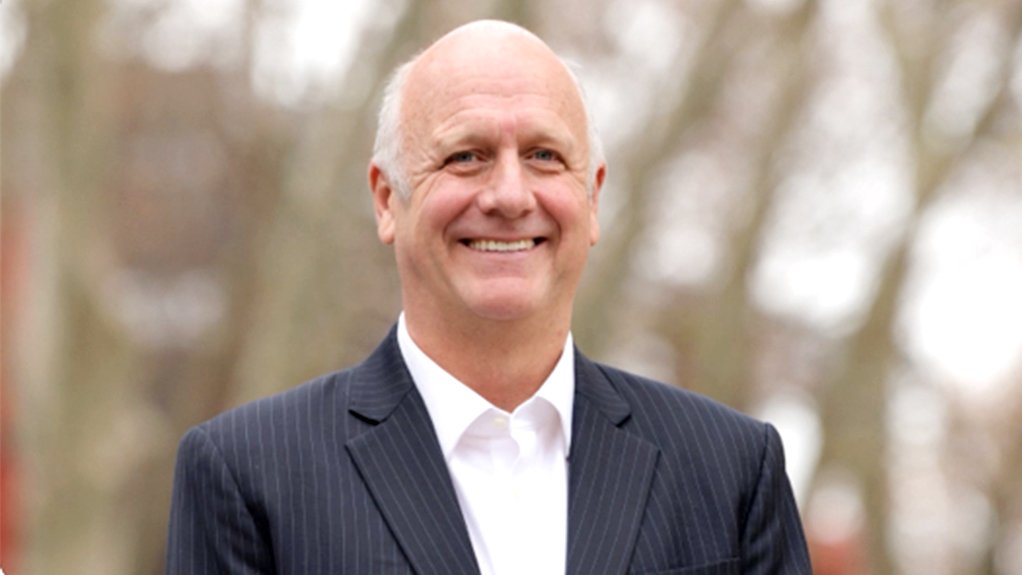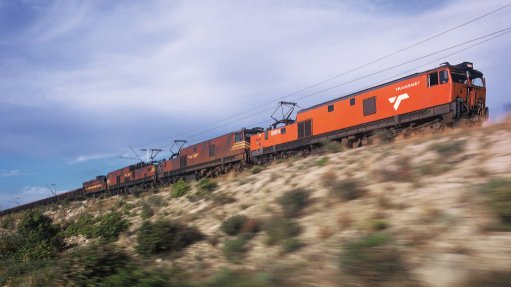South Africa’s community engagement ahead of global peers, manganese AGM hears
JOHANNESBURG (miningweekly.com) – The South African mining industry is years ahead of its international peers when it comes to local and community engagement, Australia-listed Jupiter Mines, which owns 49.9% of the Tshipi manganese mine in South Africa’s Northern Cape, has told its shareholders.
The controlling shareholder of the long-life, low-cost Tshipi is South Africa’s Ntsimbintle Mining, chaired by Saki Macozoma.
“This is a very strong base from which we intend to grow,” Jupiter chairperson Ian Murray told Jupiter’s annual general meeting (AGM) in Perth, Western Australia.
“I want to note the tremendous local and community engagement, which is so important in today's world of mining,” said Murray, who put the South African mining industry’s unrivalled local furtherance and community promotion down to its early start in 1994 under the King Report of Corporate Governance.
Regarding Australia’s own indigenous community, Murray made a point of highlighting the Whadjuk Noongar people, “on whose land we meet today”, and extended acknowledgment to the First Nations on all the lands on which Jupiter operates in Australia. The Noongar people’s Whadjuk language group are the traditional owners of the land around Perth.
When it comes to South African manganese ore, which is renowned for its quality, Jupiter and South Africa’s Manganese Metal Co (MMC) are aspiring to produce high-purity manganese sulphate monohydrate (HPMSM) for the battery electric vehicle (BEV) and battery energy markets.
They will both make use of South African ore, while the Botswana HPMSM aspirant, the Canada-owned Giyani Metals, intends using the manganese that it mines in Botswana.
Interestingly, the Canada-listed Giyani has secured $16-million in financing from South Africa’s Industrial Development Corporation (IDC) to advance an HPMSM project in Botswana, ahead of the well-researched South African aspirant MMC, which has been discussing funding with the IDC for a year but to no avail.
MMC, which has been ready for some time to go ahead with a 5 000 t/y demonstration plant in Mbombela in South Africa, has made it clear that once its accredited HPMSM goes into the batteries of the world, its local operation will be able to step out and put South Africa on the map.
MMC talks with considerable authority because it has been making the world’s purest manganese metal in the form of selenium-free electrolytic manganese metal (EMM) for 49 years.
Successful demonstration of the MMC business case would result in a bigger commercial HPMSM plant being constructed.
Jupiter, meanwhile, has produced a 99.9%-pure HPMSM sample using the Northern Cape’s manganese ore and bringing into service an internally developed hydrometallurgical production process.
Growing into the downstream BEV market will be done at a fast pace off an initial small base amid traditional steel industry demand for manganese continuing to advance at around population level growth.
Impressively, Jupiter, which reported net profit after tax of $76.5-million for the financial year ended February, has achieved an average dividend yield that is more than double the average dividend yield of the Australian Stock Exchange.
More than 100% of its current market capitalisation has been paid in dividends in the last five years, from a mine that still has more than 100 years of life.
BATTERY MANGANESE
High-purity manganese for batteries is actually not very pure in terms of manganese: “It's about 32% contained, but you need to clean up everything else, all the other minerals that are in your orebody. That's what battery grade manganese is. There is going to be high growth in demand for battery grade manganese and that's why we're interested in it,” Jupiter CEO Brad Rogers told AGM attendees.
Encouragingly, MMC has long-standing insight into ading value to manganese in that it produces 3% of the world’s manganese metal. Fifty-six per cent of this is sold to Japan, 25% to the US and 10% to Europe. The EMM is 99.9% pure, beating the next highest 99.7%.
A far-reaching new horizon is now extending for MMC, well beyond the EMM market into the burgeoning battery manganese market, with HPMSM.
Amid the IDC deciding to finance the Canada-owned Botswana-based Giyani ahead of financing South Africa's Mbombela-based MMC, Mining Weekly put these questions to the IDC and received responses from IDC corporate affairs head Tshepo Ramodibe.
Mining Weekly: Why is the State-owned IDC opting to fund a foreign-owned HPMSM project while not giving a funding answer to the local HPMSM project developer?
Ramodibe: While the holding company has foreign ownership, IDC will directly invest in two local companies for the project – one in South Africa for the demonstration plant, and the other in Botswana, for the mining operations. The IDC has been in talks with the local HPMSM project developer and is currently evaluating the project's potential benefits.
In the event of also eventually funding the local HPMSM project, why does the South Africa-owned IDC see fit to fund what will directly compete against a South African tax-paying local beneficiator?
IDC invests not only in South Africa but also in the rest of the continent, particularly in the Southern Africa Development Community. Regional development benefits flow to both the host country and South Africa. The IDC’s portfolio of investment across the continent, outside of South Africa’s borders, is currently estimated at R27-billion (market cost) across 17 countries and spans several sectors of economic activity.
While a demonstration plant is being built in South Africa by Giyani Metals, where will the commercial plant be built?
With investment from the IDC, Giyani is planning to conduct an optimised feasibility study on producing high-grade HPMSM using manganese ore from the K.Hill project in Botswana. The current analysis shows that the combination of K.Hill ore, the proprietary flowsheet and the current fiscal regime with Special Economic Zone Status means that Botswana is currently the optimal location to establish the commercial plant. As part of the bankable feasibility study, these economics will be reviewed and confirmed.
Why is it the view of the IDC that beneficiation of locally mined manganese should not take precedence over beneficiation of manganese mined in a non-South African country?
This is not the view of the IDC. IDC will assess various projects on merit and formulate an investment decision based on rigorous analysis, taking all relevant factors into account.
ACTIVE CUSTOMERS
For some time, customers have been buying MMC's EMM to dissolve it and make HPMSM, which has prompted the extension into HPMSH by MMC itself.
In its last financial year, MMC earned South Africa R2.28-billion in export revenue, exporting mainly through the ports of Maputo and Durban, and paid R179-million to the South African fiscus in taxes.
In days gone by, MMC, which has 400 direct employees and 200 indirect contractor employees, was operated by a Samancor structure on behalf of BHP Billiton and Anglo American. Today it is owned by MM Holdings, held 70% by Bright Resources and 30% by To The Point.
Speaking to Mining Weekly on the sidelines of MMC’s Open Day in September this year, Trade & Industrial Policy Strategies (TIPS) senior economist Gaylor Montmasson-Clair described MMC as a “South African industrial jewel” that could be much bigger than what it is today.
“It’s a one-of-a-kind company that we should support on its growth trajectory. The company’s vision is fully aligned with the objectives of the South African Renewable Energy Masterplan and the industrialisation of renewable energy and battery storage value chains in South Africa,” Montmasson-Clair added.
Being clean and green will be key to the acceptance of HPMSM into a BEV market that is all about greenness. MMC has already secured 1.8 MW of hydropower from a power station on the Crocodile river and is engaged in circularity with its waste, which is turned into bricks for the benefit of the local community.
Jupiter's HPMSM sample is targeted at the inclusion of the battery grade manganese in the cathode of electric vehicle batteries to introduce cost efficient energy density and potential safety enhancements.
The Australian company is doing studies to determine the ideal location of its first plant as well as considering the merits of producing a manganese concentrate in South Africa.
With the right incentives, commercial HPMSM plants would likely be built in South Africa because of the major endowment of quality manganese ore that the Kalahari manganese field hosts. But that will also have to be underpinned by better logistical performance.
HPMSM is on its way into BEVs and battery energy storage for good technical and cost reasons, with formulations increasingly including manganese in batteries. If South Africa plays its cards right, local operations will be able to earn very important export revenues for this country. Ironically, South Africa's financial support for a Canada-owned project in Botswana comes at a time when the Botswana government has extended its ban on a large number of additional South African agricultural products. As a result, the South African government has requested an urgent meeting with officials in Botswana as the ban was scheduled to expire this month.
Polity quotes South Africa's Agriculture Minister Toko Didiza as pointing out that farmers in South Africa have incurred revenue losses as a result of the fresh produce ban that Botswana has re-imposed.
Comments
Announcements
What's On
Subscribe to improve your user experience...
Option 1 (equivalent of R125 a month):
Receive a weekly copy of Creamer Media's Engineering News & Mining Weekly magazine
(print copy for those in South Africa and e-magazine for those outside of South Africa)
Receive daily email newsletters
Access to full search results
Access archive of magazine back copies
Access to Projects in Progress
Access to ONE Research Report of your choice in PDF format
Option 2 (equivalent of R375 a month):
All benefits from Option 1
PLUS
Access to Creamer Media's Research Channel Africa for ALL Research Reports, in PDF format, on various industrial and mining sectors
including Electricity; Water; Energy Transition; Hydrogen; Roads, Rail and Ports; Coal; Gold; Platinum; Battery Metals; etc.
Already a subscriber?
Forgotten your password?
Receive weekly copy of Creamer Media's Engineering News & Mining Weekly magazine (print copy for those in South Africa and e-magazine for those outside of South Africa)
➕
Recieve daily email newsletters
➕
Access to full search results
➕
Access archive of magazine back copies
➕
Access to Projects in Progress
➕
Access to ONE Research Report of your choice in PDF format
RESEARCH CHANNEL AFRICA
R4500 (equivalent of R375 a month)
SUBSCRIBEAll benefits from Option 1
➕
Access to Creamer Media's Research Channel Africa for ALL Research Reports on various industrial and mining sectors, in PDF format, including on:
Electricity
➕
Water
➕
Energy Transition
➕
Hydrogen
➕
Roads, Rail and Ports
➕
Coal
➕
Gold
➕
Platinum
➕
Battery Metals
➕
etc.
Receive all benefits from Option 1 or Option 2 delivered to numerous people at your company
➕
Multiple User names and Passwords for simultaneous log-ins
➕
Intranet integration access to all in your organisation




















